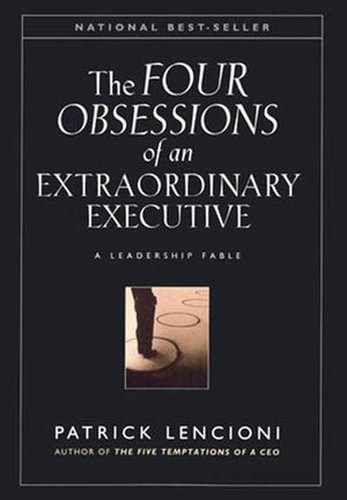MISORIENTATION
Because Rich still had almost a month of sabbatical remaining, Jamie Bender began his tenure at Telegraph without meeting his new CEO face-to-face. Although he had two pleasant but formal telephone conversations with Rich after accepting Tom’s job offer, those were no substitute for meeting the man in person. And in addition to circumventing the formal interview process, Jamie missed out on Rich’s orientation program, which would prove costly.
No one walked away from a Rich O’Connor orientation speech without a clear sense of whether they would ultimately be a fit within Telegraph. In those rare cases when misfits slipped through the rigorous interview process, within a few months they usually came to the conclusion that they didn’t belong at the firm. During exit interviews, most of them indicated that their first hint of a problem came during orientation.
Tom did his best to fill in for Rich. He covered the fundamentals of the business as well as Rich could have, and even made a point of spending sufficient time talking about the firm’s culture. But there was nothing quite like hearing Rich’s passionate description of why he started the company and what he expected of the people who worked there.
When Rich returned from his sabbatical and finally had the chance to meet Jamie, he immediately sensed that something wasn’t right. But he decided that he was being overly judgmental because he hadn’t interviewed Jamie himself. I probably wouldn’t have approved of Maurine or Tom right away either if someone else had hired them, he reasoned.
During the next few months, Rich worked closely with Jamie on a handful of projects and was surprised at what little progress he was making in terms of becoming more comfortable within the company. Jamie’s work itself was adequate, though certainly not spectacular. It was his demeanor that concerned Rich the most.
While Jamie was certainly smart enough to make it at Telegraph, he didn’t seem to share the hunger and humility of his colleagues. Though he worked a substantial number of hours, he seemed more concerned about himself than the good of the company. And when it came to sharing credit for any accomplishments that he was involved in, Jamie often seemed to crave individual attention.
After a few more months of the same dynamics, Rich’s intuition became undeniable. He was convinced that Jamie was just not a perfect cultural fit. In fact, he wasn’t close.
During staff meetings and one-on-ones, Jamie never offered strong opinions. In fact, Rich couldn’t remember one instance when Jamie had challenged the opinion of a colleague, not to mention Rich himself. Some basic element of authenticity seemed to be missing.
But Tom and the other staff members saw Jamie as a symbol of Rich’s trust and their good judgment, so naturally they wanted him to succeed. Whenever Rich expressed his concerns about Jamie to one of them, they usually came to the defense of their new HR executive. Even Jamie himself eventually became aware that his peers were in his corner, though he didn’t yet realize how he would later be able to leverage their support.
For a while, Rich’s staff was able to keep their boss at bay about Jamie. After all, Rich knew that their intentions were good. And because he genuinely wanted to trust them in this matter, he backed off.
Finally, after a few more awkward weeks, Rich decided that the time for waffling was over. I’ve worked too hard to build this company . . . Even in his mind he never seemed to finish that sentence.
..................Content has been hidden....................
You can't read the all page of ebook, please click here login for view all page.
